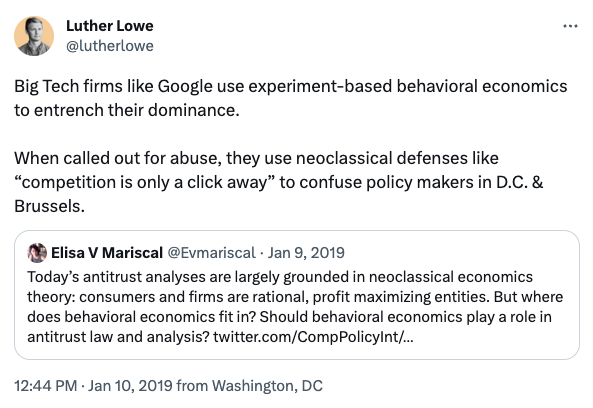Defaults Matter
Defaults are like drugs.
We underestimate their influence and we overestimate our ability to avoid them.
For product designers, defaults are particularly dangerous–they provide license to manipulate user behavior in a guilt-free way. By providing choice, technically a user could opt-out of a strong nudge. But in practice very few will.
Google is currently spending millions to convince a judge that defaults aren’t actually all that important. There is ample research to disprove this. But the argument speaks to something deep inside us that wants to believe that we aren’t so easily manipulated. It doesn’t feel good to think that just because we get anchored on something, we’re too lazy to change or to think for ourselves. Especially if defaults are used by big corporations to maximize profits or preserve monopolies.
However awareness alone can lead to two good outcomes:
- We push back. We cancel, unsubscribe, opt-out, and choose alternatives.
- We exercise restraint. We think twice before using defaults in a manner that manipulates, knowing that the average user will stick with the base settings.
I’m curious how the discourse around defaults changes as a result of this Google case. I hope it will spur a lot of good discussion. I do think that it draws serious attention to Apple’s bundling strategies. Those seem at risk in the coming years.
